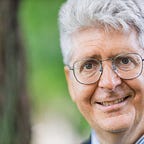Promoting tolerance, collective action and the role of universities
Fernando M. Reimers
Another hate attack, this time in San Diego, as members of the Congregation Chabad in Poway, California, prepared to participate in a memorial service on the last day of Passover, reminds us of the lethal consequences of antisemitism and other forms of hatred. This time, the alleged perpetrator is a college student. Someone who has had the benefits of many years of education. A student on the Deans list at California State University at San Marcos, a graduate of Mount Carmel High School, a public school with a rich curriculum where his father has taught science for years. Someone whose privilege to study in college should have prepared to recognize his shared humanity with Lori Kaye, the sixty year old he murdered in the Synagogue. As we mourn Kaye and the three other persons injured, as we stand in solidarity with those affected in the congregation Chabad and in the entire Jewish community, and as we denounce anti-semitism, we must also ask: what could universities do that is effective in preventing such hatred and its lethal consequences?
Creating the conditions that prevent hatred, and that replace it with tolerance, acceptance and love, is clearly a wicked problem without an easy answer. There are multiple dimensions to the problem, multiple causes and drivers, and no single option to fix it. Political, religious and social leaders can do much to bring people together, and many do, most visibly as leaders publicly come together after a tragedy such as the one in Poway, but also in the everyday work that they do to help people of all faiths, of all races, of various sexual orientations or other forms of difference, appreciate those differences and learn to come together to collaborate in various ways. The important good work of leaders who can unite people across their differences is most noticeable when its absent. In addition to good leadership, effective work of members of the law enforcement community is also essential to prevent and address the lethal consequences of hate. Other factors contributing to the wicked problem of the dangers of hate include the prevalence of unaddressed mental health challenges, the ready access to weapons in the United States and the potential of technology to help hate groups disseminate their ideology and cultivate new recruits.
Schools and universities can also help replace hatred with tolerance, acceptance and love. To a great extent, these institutions do this as part of their day to day work. It is for this reason that when a college student is the perpetrator of a hate crime, as in the attack in Poway, all of us who work in universities should pause to ask ‘what went wrong?’, which is to ask ‘why did the university not do for this man what it is expected to do for all, to teach them to see diversity with respect and appreciation, to teach them to be tolerant of those unlike himself, to help him find shared humanity with those he saw as different.’ In asking this question we should at the same time be asking: ‘how are we, in our institution, educating our students so they can embrace and accept those who are different to them?’
The world is significantly less violent today than it has ever been because, among others, the contributions of schools and universities to promoting such tolerance. But when these institutions fail to do this for some, and the consequence is the hatred that led John Earnest to enter a temple armed with a rifle with the intent to murder, we must all ask ourselves how do we do better.
The promotion of tolerance, of educated citizens who can act in ways that make democracy thrive, is a public good essential to the mission of universities. Three obvious actions within the reach of universities to promote tolerance include a) educating their students for the practice of tolerance and to embrace diversity, b) support teachers in elementary and secondary schools in advancing the same goals, and c) partner with specialized organizations of civil society, such as Facing History and Ourselves, the Southern Poverty Law Center, the Antidefamation League and other that support teachers in advancing the same goals.
But as with all public goods, there are challenges to trying to achieve those in institutional isolation. We should not ask ourselves how to advance these three actions in isolated ways within our respective institutions or departments, rather, we should do this as a community of institutions as we do with other significant adaptive challenges we confront, such as how to become more inclusive, affordable, relevant or appreciated by the public. Pursued individually, the large number of universities, in the United States and in the World, would predictably lead to the challenges of collective action in trying to create a public good, such as tolerant graduates. Leadership is necessary to provide the concentrated incentives that enable large groups attempting collective action to actually succeed.
It is clear that those who espouse hateful ideologies, such as white supremacy or anti-semitism are a minority in the population. Most people do not share or support their views. The challenges of collective action are to ensure that the majority tolerant views are not hijacked by the organized efforts of a small group of haters. Universities can provide the leadership that continues to ensure that education contributes all that it can to sustaining a world where all can live in Peace.
